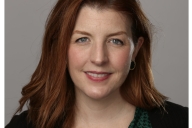You have /5 articles left.
Sign up for a free account or log in.
Before our first child was born we prepared to be parents in ways that academics always prepare for big projects: extensive reading and research, lists of necessary equipment, plan for implementation (i.e., the birth plan), the “lab” organized (i.e., change table at proper height, clean diapers and wipes within optimum reach). Our background reading consisted of any parenting and infant books we could get our hands on, and these experts joined us at the dining room table and at our bedsides, even making their way to the hospital in my labor bag when I gave birth (I was sure I’d have some burning question between contractions, or worse, I might forget how to breathe!). Of course this kind of obsessive preparation for birth and parenting isn’t unique to academics, but my husband and I couldn’t help but notice the parallels between parenting our babies and parenting our research. (One biologist I know admitted to pushing a manuscript to the post office in his son’s empty stroller, telling anyone who asked that it was “his baby.”)
When our son arrived we timed his feedings and charted frequency of diaper changes, and when he moved on to solid foods, we consulted the food introduction plan we had devised and carefully titrated combinations of foods to avoid constipation or worse (just the right amount of pureed prunes mixed with the mashed banana). We scrutinized every soiled diaper, and took one diaper with a mysterious-looking product to our family doctor. As she took it out of the plastic bag, the doctor reassured us that nothing was wrong and said, “I always get worried when parents examine their baby’s diapers too closely.” We didn’t admit that we’d thought about running over to the university with it to have a look under the microscope. Of course we weren’t able to laugh at ourselves at the time, but our doctor laughed for us every time we walked out her door.
Out of necessity and to preserve our sanity, we had to relax a little and stop worrying about the details with baby number two. The experts moved from the bedside table to the bathroom and finally were lost under piles of laundry and toys. But one day I panicked and hunted everywhere for my dog-eared parenting manuals. Earlier in the day a friend was lamenting that with her second child she’d had no time to study her books about toddlers. She feared she was overlooking crucial developmental phases where she’d need to intervene before it was too late to do anything to change habits or behaviors. My first thought was , “Oh, no, she’s right! Maybe I’ve missed something too.” Then I realized that I’ve been doing what seems to work for my family all along, experimenting every day to see what works best for my children and their combination of temperaments. Mostly I just muddle through, hoping it will all work out. I’ve made plenty of mistakes, and maybe I’ve missed something, but I’ll never really know until it’s too late, so why worry! I’ll deal with it when the time comes, but I’d like to think that my children are fairly resilient.
As with many in today’s society, academic families tend to move where we find jobs, which usually means living far from parents, siblings, and other relatives. And we’re often older when we have children, so our own parents may no longer be in the picture. It’s no wonder we turn to expert advice when we lack family support nearby. As academics we’ve learned to solve problems through research and experimentation. In assessing what works best with our own children, it comes naturally to read up on the latest child development studies and try methods suggested by experts.
However, the problem I’ve discovered with relying on parenting manuals is that it’s too easy to have the mistaken notion that there’s one right way to parent. There’s no one-size-fits-all solution to family interactions or balancing work and family life. We all have to go with our own experiences. And children’s needs are so different; our kids will always be outliers in some behavior or another on any given spectrum. There are some wonderful parental advice columns and books out there, and I still consult them when I have a chance. But I’m finally learning to trust my own intuition and observations. And my husband and I, through all of our experimentation with our sample size of two, are learning that we are after all the experts on our own children, whether we know what we’re doing or not. We’ll just keep at this long experiment to test our hypothesis that parenting is complicated but rewarding work.





